#overlandresponsibly
Pack it in, pack it out
We’ve all heard the phrase, but is that what we do? It’s easy to ignore that one piece of trash, but how about if we don’t. If you bring it with you, then take it with you. Or better yet, leave the space nicer than when you arrived and pick up found trash with you as well. No one benefits from leaving wrappers (yes, the one that blew away), leftover food (including that apple core), or, really, any trash at a campsite or other places you have stopped along the way.
There are plenty of reasons to take it with you, but to name two: it keeps wildlife, wild and it keeps nature clean for the next person to enjoy—not only visually, but litter can impact access over time.
What to do with all that trash? Find a dumpster or trash can that is not at a gas station (those tend to be overfull). We are all going out into nature to enjoy it, so it is our responsibility to leave the lands we recreate in as beautiful as we found them.
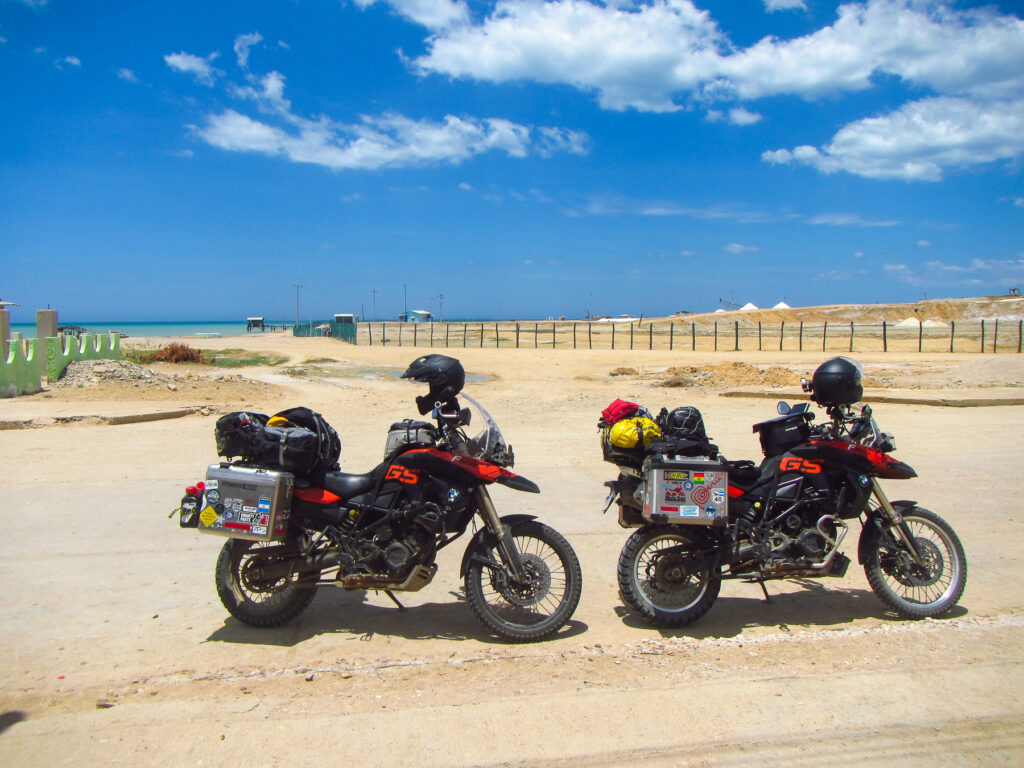
#Poop Responsibly
Do Bears Poop in the Woods? Should Humans? Yes, as long as proper sanitary practices are followed.
When selecting a location to relieve yourself, select a site that is at least 200 feet away from any water source, trails or campsite. Dig a cathole 6-8” deep and 4-6” in diameter, go, and then cover up the hole with organic material to help with decomposition and concealment.
Less is better: use toilet paper sparingly, disperse cat holes and never dump toilets in nature. And ladies, when it’s that time of the month, tampons and pads need to be packed out, not buried.
As overlanders, it’s our responsibility to be discrete and keep the places we like to camp clean.
Don't burn It down
Fire safety is more involved than getting that initial piece of kindling to catch a spark. When in the backcountry, there are a few best practices to follow for having that cozy campfire to sit around, tell stories and sip a cup of hot cocoa (or whiskey, if that’s preferred).
Before starting the fire, pick a spot with at least a 15-foot radius cleared around the campfire (this includes trees, firewood, tents, or anything flammable). Dig a pit and encircle with rocks to create a barrier for your fire. Then, build your fire (using your favorite method, but please leave gasoline in your vehicle). Once your fire is flaming, do not leave unattended. When you are finished enjoying the fire for the evening, make sure all embers are extinguished, and if not, douse it with water or use a shovel to cover with dirt. If it is too hot to touch, it is too hot to leave.
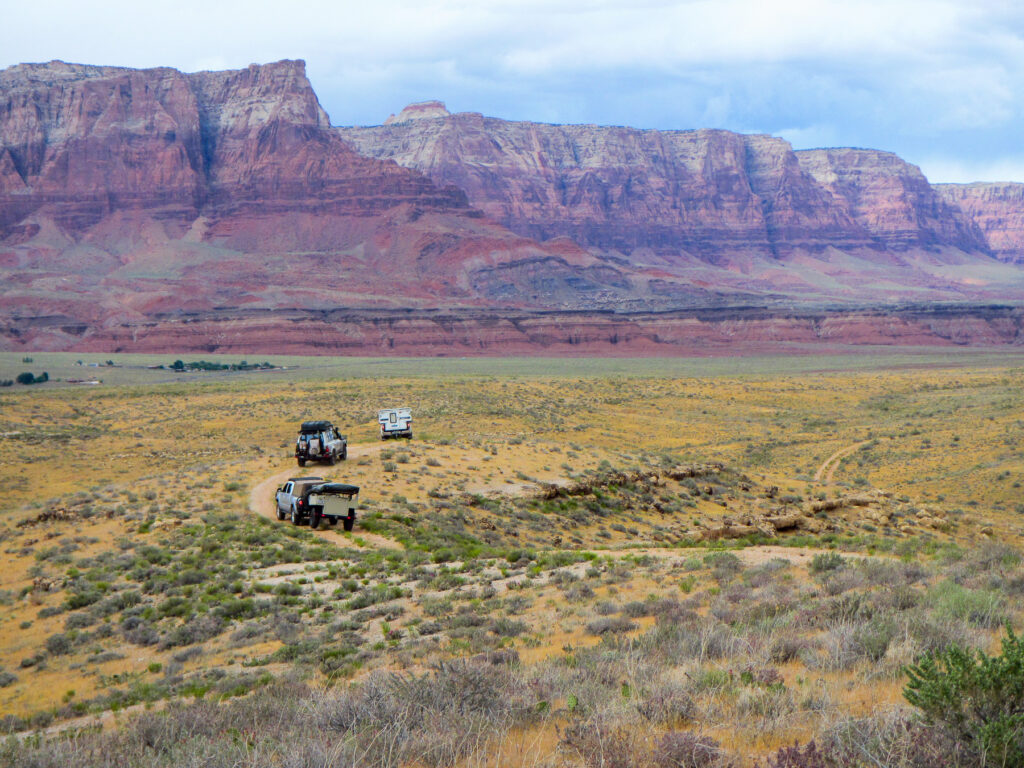
Mind your trail manners
Cows might not know how to share the road, but we should: know your road and trail etiquette. We all want to explore, but our vehicles, which are twice the weight of the average cow, can do some serious damage if we aren’t careful. It’s important to stay on designated roads, trails, and areas to avoid sensitive areas and avoid widening paths. We are responsible for the ecological impact in an area, and if we aren’t mindful, over time, our impact may lead to closures and affect our access.
Respect the “rights” of others. In the U.S., we drive on the right side of the road and we should do the same off-road and on the trails. Not sure who goes first? Remember to yield the right of way to those passing you or going uphill.
Location: Unknown
Imagine after hours on backcountry trails, you’ve just rolled into a beautiful “undiscovered” location with a scenic vista, set up camp in time to watch the sun set, and your heart is all aglow. You take a picture and want to share the warm fuzzies with the world. By all means (or really, cell or internet availability), share the picture and the fuzzies, but please don’t tag your location on social media. Bringing awareness and invitations to remote locations has, unfortunately, also brought overuse and trash to these once remote locations. Known trails are able to sustain that kind of repeated use, but let’s keep the wild, wild.
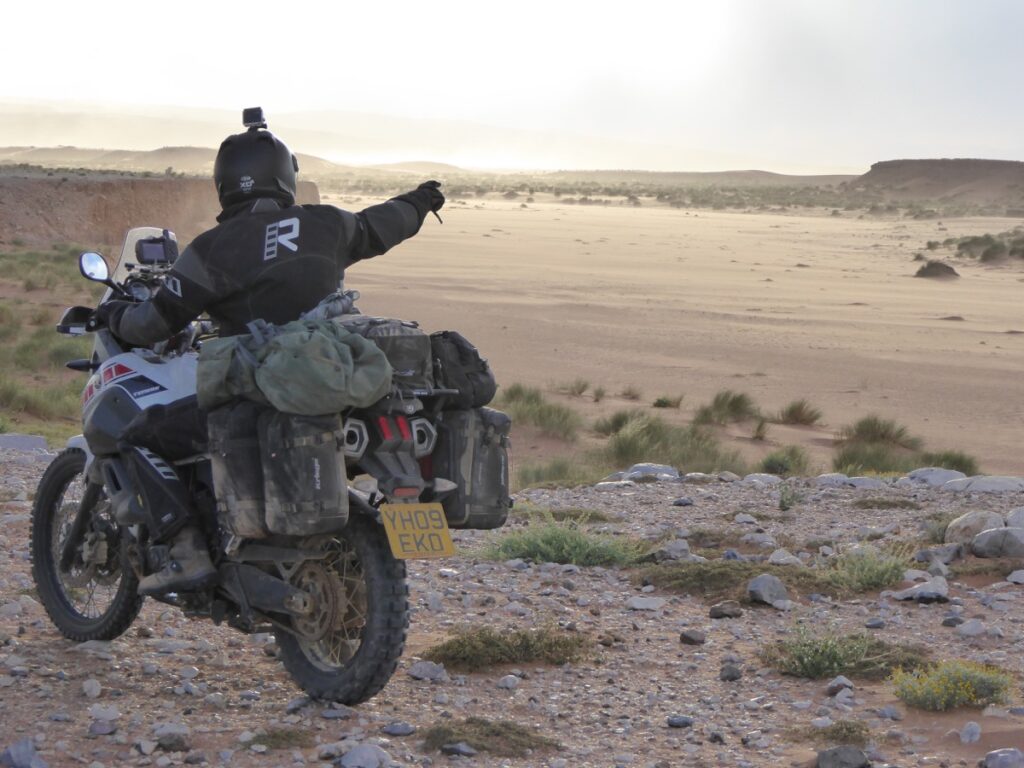
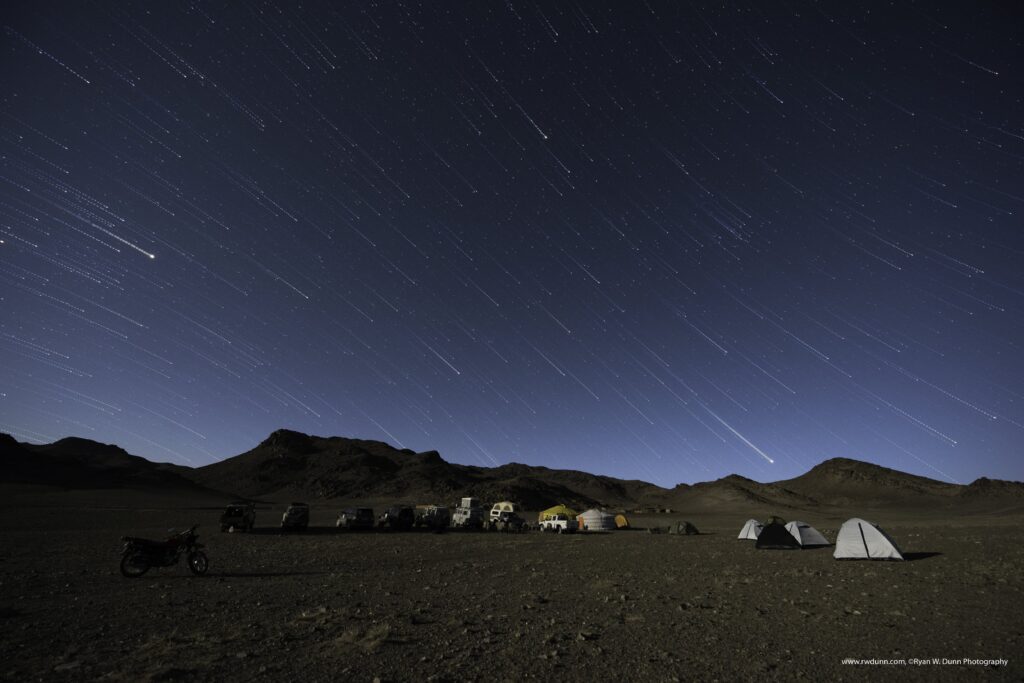
Immerse Yourself
When traveling to your favorite local adventure spot or finding new ones abroad, we can help them thrive. Help boost local economies by being a patron of local businesses. Reach out to local groups for information about the area — it’s a great way to meet locals, join upcoming rallies / gatherings or find stewardship projects to take part in. There are plenty of opportunities to directly give back to the community, what’s your favorite way? Drop us a line with yours.
Get trained, Get Going
Overlanding is all about self-reliance, so why not be properly prepared for your next overlanding trip? There’s a long running joke that it’s not an overland adventure until something goes wrong (usually not if, but when). It’s best to know how to get out of it when things break, so a little education can go a long way. We recommend taking off-road driving/riding skills, knowing how to recover your vehicle and what is the right equipment to take with you (or leave at home), and other overlanding specific topics. Of course, we highly recommend attending an Overland Expo event in your area, but if you can’t, there’s lots of information online.
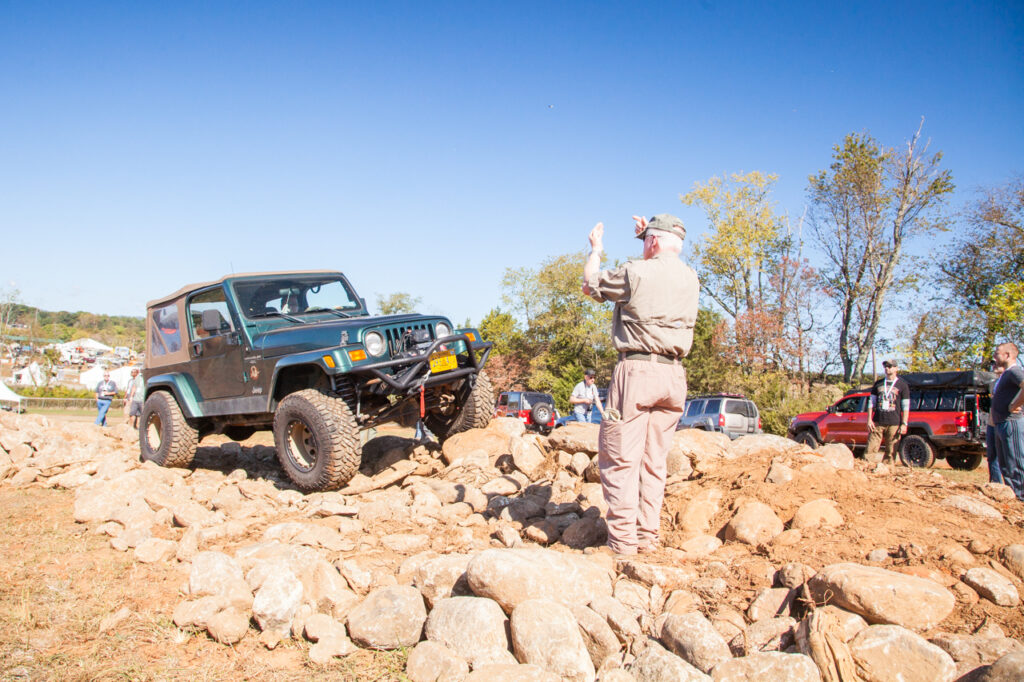
Tell us about your project
Always dedicated to fostering preparedness, understanding, & outdoor sustainability